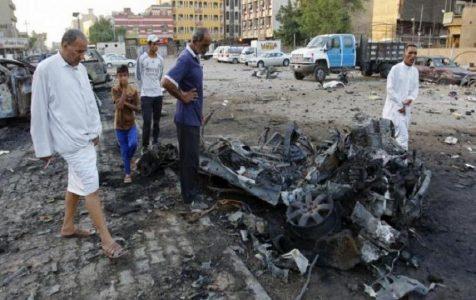
Turkish authorities hand over Baghdadi-linked ISIS leader to Iraq
Guarding press freedoms, freeing detained journalists and establishing a journalists union are promises Iranian President Hassan Rouhani made when running for a second term in office.
On World Press Freedom Day, progress on those promises is harder to spot than ever.
A long list of journalists and freedom speech activists can rule out any effort exerted by Rouhani being fruitful. Human rights activists shed light on a government crackdown on small town journalists that go undocumented for the fact that they occur in rural areas.
Only months ago, journalists became the prime target in raids taking place after conservatives took control over the board of founders and the board of trustees of the Islamic Azad University.
Ali Akbar Velayati, a top adviser to Iran’s Supreme Leader Ali Khamenei on international affairs, now heads the university’s board.
The new board head began a far-reaching screening of university-affiliated media outlets.
Velayati’s campaign so far saw the firing of over 30 journalists because of political alignments and intellectual differences with the ultra-conservative regime led by Khamenei.
In contrast, journalists and the media industry cling tightly to their profession despite facing security threats.
Perhaps over half of media workers don’t have contracts or insurance, but are still devoted to the practice. For this, journalists are fighting to reopen the national union for journalists, a body that defends rights and provides health insurance and pensions for press workers.
Rouhani had pledged five years ago to restore the Association of Iranian Journalists, but no license has been issued so far to re-establish the body.
The organization was created in 1997 at the onset of the presidency of reformist Mohammad Khatami.
With the inauguration of the presidency of ultra-hardline conservative Mahmoud Ahmadinejad, the association faced systematic harassment from authorities, which culminated in its shutdown in 2009.
The media in Iran today is at a crossway, either to be part of the pro-regime propaganda “machine” that receives authority validation and financial support, like dozens of newspapers and news agencies linked to the Revolutionary Guards, or possibly face criminal charges in their pursuit of truth.
Source: Shafaaq





